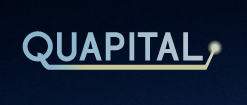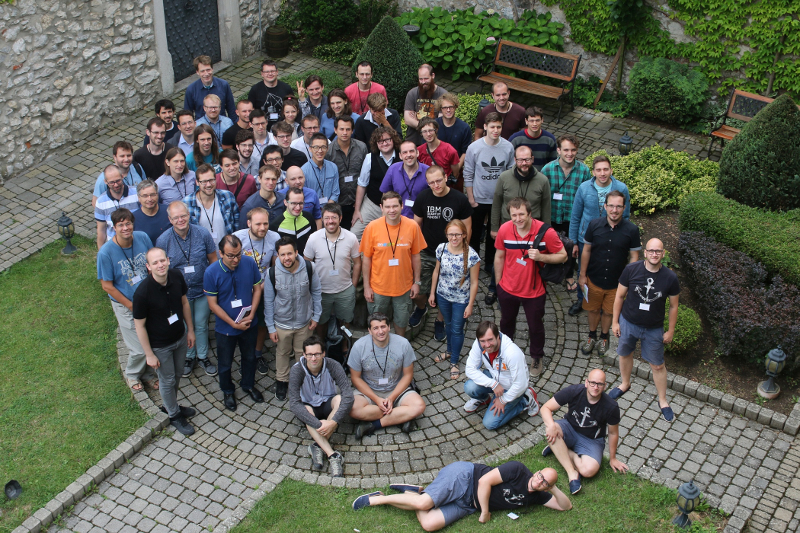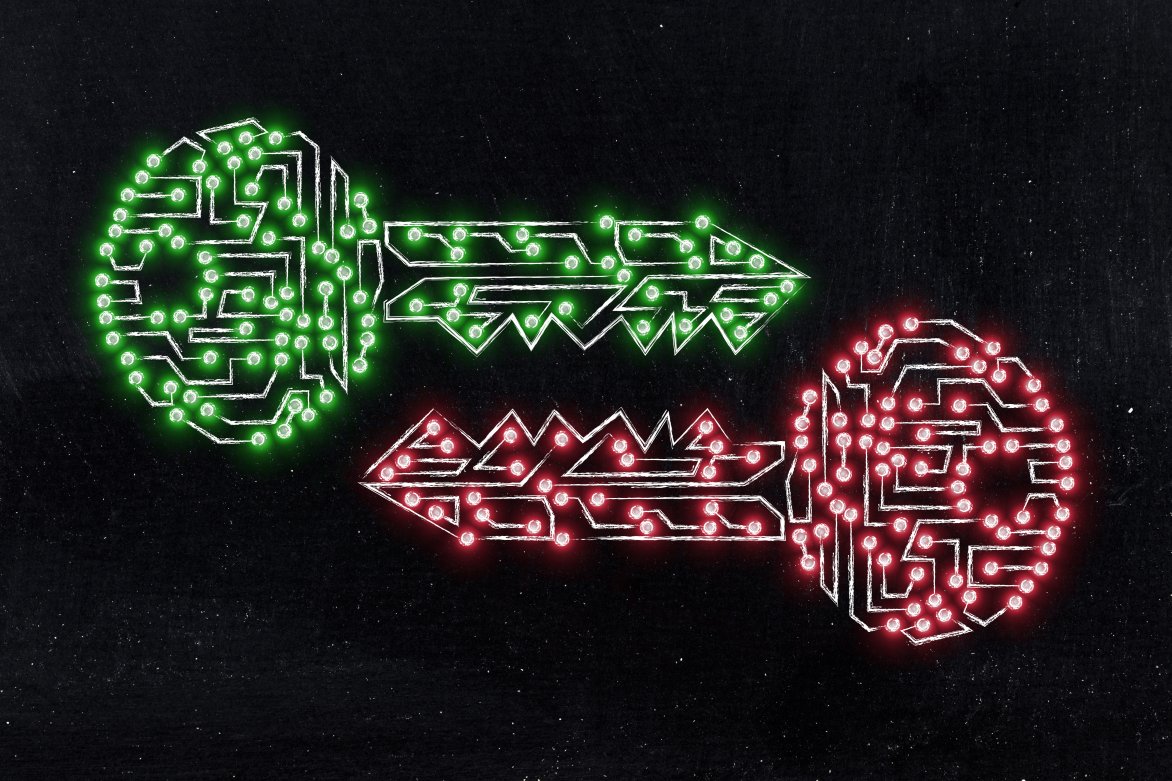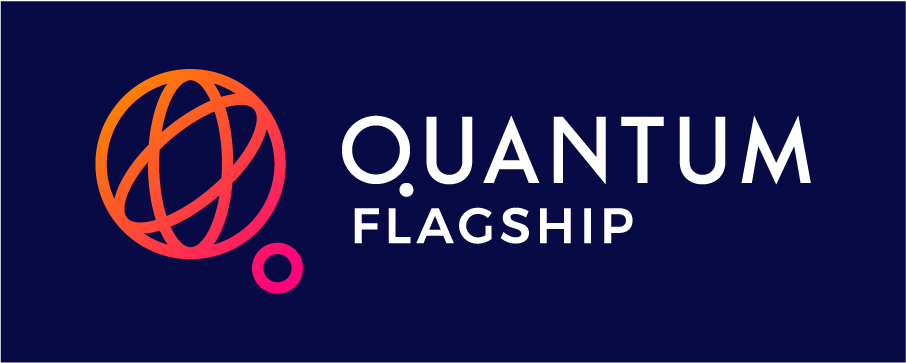iQUTE (Virtuálny výskumný inštitút pre kvantové technológie)
11 March 2021 - Seminar

Bilateral Meeting with NTU
Today (11/03/2021) we enjoyed the meeting with researchers from National Taiwan University. The program was as follows:
[Bratislava time/Taiwan time]
10:00-10:30/17:00-17:30 Forewords
Prof Ching-Ray Chang: Overview of research activities
Prof Vladimir Buzek: Overview of research activities
10:30-11:10/17:30-18:10 Experiments
Prof. Yen-Hung Chen: Integrated Photonic Quantum Source
Prof. Miroslav Grajcar: Single-photon nanowire detectors
11:10-11:50/18:10-18:50 Theory
Prof Tsung Wei Huang: The applications of quantum annealing and new concepts in VQE
Dr. Daniel Reitzner: Quantum walks
11:50-12:00 / 18:50-19:00 Wrap up
27 January 2021 - Conference
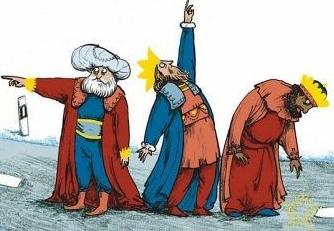
Three kings conference
Annual one day meeting of Czech and Slovak physicists will be held on January 27th online.
More information and registration form are available on the meeting website http://unix12.fzu.cz/3KK-2021/.
01 January 2020 - Konferencia
Trojkráľová konferencia
Každoročné jednodňové stretnutie českých a slovenských fyzikov.
Kedy: 10.1.2020
Kde: in QUTE Auditorium (RCQI, IP SAS) in Bratislava.
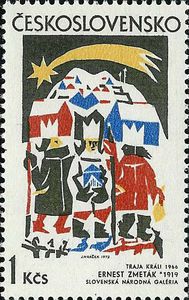 Program konferencie:
Program konferencie:
08:55 Čas na otvorenie
09:00 Ondřej Pejcha Explosions in the Universe and the Origin of Chemical Elements
09:40 Martin Žonda Characterization of superconducting quantum dots made easy
10:05 Jakub Kvapil Heavy flavour production at LHC
10:30 Čas na občerstvenie
11:00 Lukáš Slodička Coherent control of nonclassical light emission from trapped ions
11:40 Tomáš Samuely Black diamond – superconducting and ferromagnetic
12:05 Vladimír Tkáč Transport properties of topological insulators
12:30 Čas na obed
14:00 Martin Krššák Going beyond general relativity: challenges in gravity theory
14:40 Boris Tomášik: Fázový diagram QCD a fluktuácie počtu protónov
15:05 Zuzana Moravcová Kolektivita (nielen) v jadro-jadrových zrážkach
15:30 Martin Venhart Triaxiálne atómové jadrá
16:00 Čas na občerstvenie
16:30 Pavol Siman Zem - naša planéta
17:00 Existenciálna kríza planéty panelová diskusia, moderuje Vladimír Bužek
More information and registration form are available on the meeting website http://quantum.physics.sk/conf/3kk2020.
30 September 2019 - School
Quapital summer school 2019
Summer school for students from the QUAPITAL consortium, but open for all participants, is scheduled for 30/09/2019 - 06/09/2019 and organized at the Research Center for Quantum Information in Bratislava. More details and registration form are available on the school website https://quapital.eu/index.php?id=105.
15 January 2019 - People
Quantum Community Network (QCN)
The Quantum Community Network (QCN) represents the QT communities of EU member state and associated state in the Quantum Flagship. It consists of 1 member and 1 deputy member per member state and associated state. The QCN member mandate lasts 4 years. All members are high-profile experts with a large network in the national quantum community. The core objective is the coordination of the Flagship with national programs; to identify, engage and involve relevant national stakeholders and to be the go-to-persons for all Quantum Flagship related questions in their countries. Slovakia is represented in QCN by Mário Ziman and Prof. Miroslav Grajcar.
01 January 2019 - Docs

The future is quantum
(The declaration of Slovak national research platform for quantum technologies QUTE.sk)
… continue to read … [this text is in Slovak]
22 November 2018 - Workshop
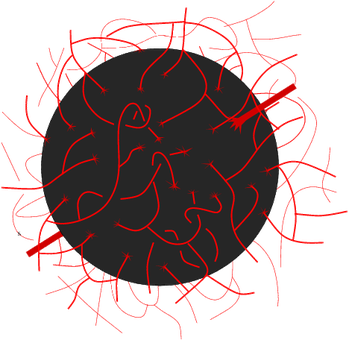
Gravity in Qubits
Participants of QSS consortium will meet in November, 21-24 in Slovakia (Bratislava and Smolenice) for an exceptional colloquium, to discuss opportunities for the cross fertilization of Quantum Computing and Quantum Gravity. Particular emphasis will be given to opportunities for near future experiments to probe quantum gravitational effects and theoretical implications.
http://www.qsimspacetime.com/gravity-in-qubits.html
13 June 2018 - Workshop
CEQIP 2018
15th edition of the traditional workshop focused on current trends in theoretical quantum information sciences. Deadline for paper submission is April 3rd. The meeting will take place in the charming Smolenice castle, 13-16 June. More information is available at CEQIP website.
15 April 2018 - Inmedia - Otokar Horák (Dennik N)
Slovenskí vedci sa budú v projekte NATO zaoberať šifrovaním v ére kvantových počítačov
Hoci kvantové počítače zatiaľ neexistujú, vedci dokážu odhadnúť ich parametre a silu. Preto navrhnú bezpečnostné šifry tak, aby odolali ich predpokladanej výpočtovej sile.
…. Prečítajte si viac v Denniku N ….
22 March 2018 - Workshop
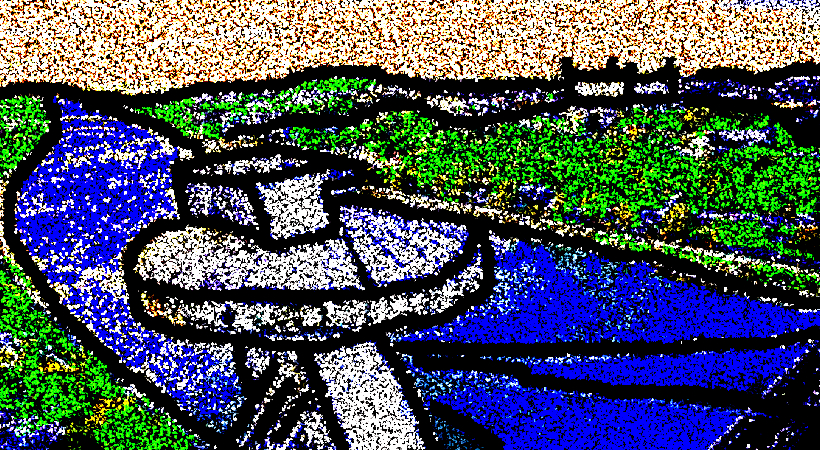
MACROQUAS 2018 - Optomechanical route to macroscopic superpositions
The aim of this workshop is to pin-point the suitability of levitated optomechanics as a test-bed for the investigation of the validity of quantum theory at the mesoscopic and macroscopic scale; identify the fundamental challenges of such tests and the it will address opportunities offered by a space-based configuration; compare the capabilities of levitated optomechanics to those of other platforms such as magneto-levitated one for the identification of the best-suited experimental platform. Continue on MACROQUAS 2018 webpage.
When: 22-23/03/2018
Place: Pavilón kvantových technológií, Dúbravská cesta 9, Bratislava - Patrónka [map]
15 March 2018 - News

Kvantové technológie na Slovensku
Kvantový flagship je dnes jednou z hlavných výskumných priorít Európskej komisie, ktorého cieľom je podpora európskeho výskumu v oblasti tzv. kvantových technológií. Vedná oblasť kvantovej teórie informácie, z ktorej výsledkov vznikajúce kvantové technológie čerpajú, vznikla ešte v devädesiatych rokoch minulého storočia. V roku 2000 prof. Vladimír Bužek založil na Fyzikálnom ústave SAV oddelenie Centrum pre výskum kvantovej informácie, ktoré sa venuje teoretickému vývoju kvantových technológií. Medzi desať najcitovanejších vedeckých prác z fyziky (vrátane publikácií z CERNu) na Slovensku patria práce prof. Bužeka o kvantovom klonovaní a kvantovom komunikačnom protokole “quantum secret sharing”. Dnes sa výskumníci centra sústreďujú na oblasť kvantových sietí, kvantovej výpočtovej zložitosti, kvantovej metrológie a vývoju efektívnych výpočtových nástrojov na simulovanie kvantových systémov. Matematický výskum v oblasti kvantových štruktúr a logík na Matematickom ústave SAV rozvíjal prof. Anatolij Dvurečenskij a jeho kolegovia ešte pred objavom ich potenciálu v informačných technológiách. Ich práce patria na Slovensku medzi tie najcitovanejšie v matematike. Experimentom v oblasti kvantového počítania sa venuje výskumný tím pod vedením prof. Miroslava Grajcara, ktorý, v spoločnom laboratóriu Fakulty Matematiky, Fyziky a Informatiky UK a Fyzikálneho ústavu SAV, pracuje na supravodivej implementácii kvantových bitov, s aplikáciami najmä v oblasti kvantových meraní a kvantovej optiky v mikrovlnom režime. Vývoj kvantových technológií priamo súvisí aj s materiálovým výskumom (realizáciou exotických systémov ako napr. Majoranovské fermióny), ktorý zastrešujú (celosvetovo) unikátne nízkoteplotné laboratóriá Ústavu experimentálnej fyziky SAV (prof. Peter Samuely) a Prírodovedeckej fakulty UPJŠ (prof. Alexander Feher) v Košiciach.
27 February 2018 - Seminar
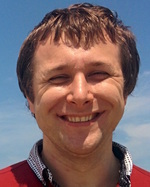
Optimal Port-based Teleportation in Arbitrary Dimension
Quantum teleportation is one of the earliest and most widely used primitives in Quantum Information Science which performs an arbitrary quantum state transfer between two spatially separated systems. It involves pre-sharing an entangled resource state and consists of three simple stages. The first stage involves a joint measurement of the teleported subsystem together with the share of the resource state on the sender’s side. In the second step, a classical measurement outcome is communicated to the receiver. The last step consists of applying a requisite correction operation which recovers the transmitted quantum state. Port-based teleportation (PBT) is a unique set of teleportation protocols in that they do not require unitary correction. We study PBT protocols and fully characterize their performance for arbitrary dimensions and number of ports. We find the optimal probability of success and the fidelity of teleportation for all probabilistic and deterministic PBT schemes. In the latter case, surprisingly, the answer depends only on the largest eigenvalue of a certain easy to construct a matrix which encodes the relationship between a set of Young diagrams and emerges as the optimal solution to the relevant semidefinite program. To derive our results, we develop new mathematical tools to study the symmetries of the operators that arise in PBT protocols and belong to the algebra of partially transposed permutation operators. These tools can be used to characterize quantum systems with partial symmetries. Quantum states occurring in the PBT protocol are one such example. Systems with partial symmetries are widespread but in contrast to their permutational-invariant counterparts very little is known about how to efficiently estimate their properties.
Speaker: Sergii Strelchuk (Cambridge)
Time: 27/02/2018, 11:00
Place: QUTE building, Dúbravská cesta 9, Bratislava - Patrónka
18 January 2018 - Seminar
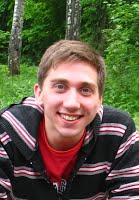
Time deformations of quantum master equations
Speaker: Sergey N. Filippov (Moscow)
Abstract: We subject convolutionless and convolution master equations to time deformations and explore properties of the modied maps. Positive and completely positive divisibility of the original dynamical map is related with positivity and complete positivity of the deformed map. We provide examples of time-local and convolution master equations for qubits to illustrate the results.
Time: 18/01/2018, 11:00
Place: QUTE building, Dúbravská cesta 9, Bratislava - Patrónka
20 December 2017 - Docs

Quantum Technology Innitiative in Slovakia
Experts from academia (Prof. Vladimir Buzek, Prof. Peter Samuely, Prof. Alexander Feher, Vladimír Cambel, DrSc, Prof. Miroslav Grajcar, doc. Karol Nemoga, doc. Mário Ziman) have met with the representatives of Slovak Ministry of Education to discuss possibilities of the support for the development of quantum technology oriented research in Slovakia. This is the starting point of the National Quantum Technology Slovak National Initiative. Although no formal proposals have been made, the process of the formulation of the national platform has started. Let us stress that the existence of such national platform is necessary requirement for Slovak researchers to have access to European Quantum Flagship. Specialized research programs and invesments are already running in many European countries: United Kingdom (350 M£), Denmark (300 M€), Germany (300 M€), Netherlands (300 M€), Hungary (10 M€), etc. Even stronger quantum technology programs are in China, Japan, USA, Canada, Australia. Huge recent investments of Google and Microsoft in quantum technologies demonstrates that the field has really strong potential.
20 December 2017 - Docs
Quantum Technologies Flagship Final Report || pdf ||
To prepare the QT Flagship, the European Commission appointed an independent High-Level Steering Committee (HLSC) consisting of 12 distinguished Academic Members and 12 high-ranking Industry Members (from both large multi-nationals and SMEs), as well as one observer. One of the members of HLSC was Prof. Vladimír Bužek, founder of Research Center for Quantum Information at Institute of Physics of Slovak Academy of Sciences. After almost one year, on July 2017, HLSC presented their final report.
The Strategic Research Agenda (SRA) proposed in this document sets the ambitious but achievable goals for the Flagship’s ten-year lifetime, and details them for the initial threeyear ramp-up phase. To work towards these goals, the QT Flagship should be structured around four mission-driven research and innovation domains, representing the major applied areas in the field: Communication, Computation, Simulation, as well as Sensing and Metrology. These application domains should be built on a common basis of Basic Science, with top research institutions and companies spread across Europe assisting their objectives by delivering novel ideas, tools, methods and processes. The enabling aspects addressed in each domain belong to one of these three categories: Engineering and Control, Software and Theory, Education and Training.
20 December 2017 - Docs
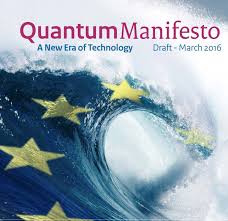
Quantum Manifesto || pdf ||
Strategic document that calls upon Member States and the European Commission to launch a €1 billion Flagship-scale Initiative in Quantum Technology, preparing for a start in 2018 within the European H2020 research and innovation framework programme. It was prepared by Aymard de Touzalin (European Commission), Charles Marcus (University of Copenhagen), Freeke Heijman (NL ministry for economic affairs), Ignacio Cirac (Max-Planck Institute for Quantum Optics), Richard Murray (Innovate UK) and Tommaso Calarco (IQST Centre, Ulm) and officially released on May 2016 at the Quantum Europe Conference in Amsterdam in cooperation with the European Commission and the QuTech center in Delft. It aims to place Europe at the forefront of the second quantum revolution now unfolding worldwide, bringing transformative advances to science, industry and society. It will create new commercial opportunities addressing global challenges, provide strategic capabilities for security and seed as yet unimagined capabilities for the future. As is now happening around the world, developing Europe’s capabilities in quantum technologies will create a new knowledge-based industrial ecosystem, leading to long-term economic, scientific and societal benefits. It will result in a more sustainable, more productive, more entrepreneurial and more secure European Union. Quantum Manifesto was endorsed by more than 3500 researchers and initiated the Quantum Technology Flagship. The document was prepared under FP7 Coordination Action QUTE-EUROPE (http://qute-europe.eu/) that was coordinated by Research Center for Quantum Information of Institute of Physics of Slovak Academy of Sciences (Mário Ziman).
